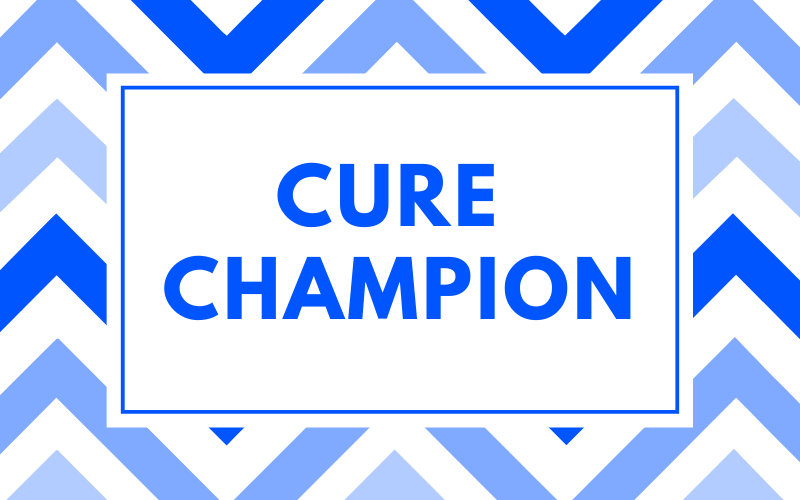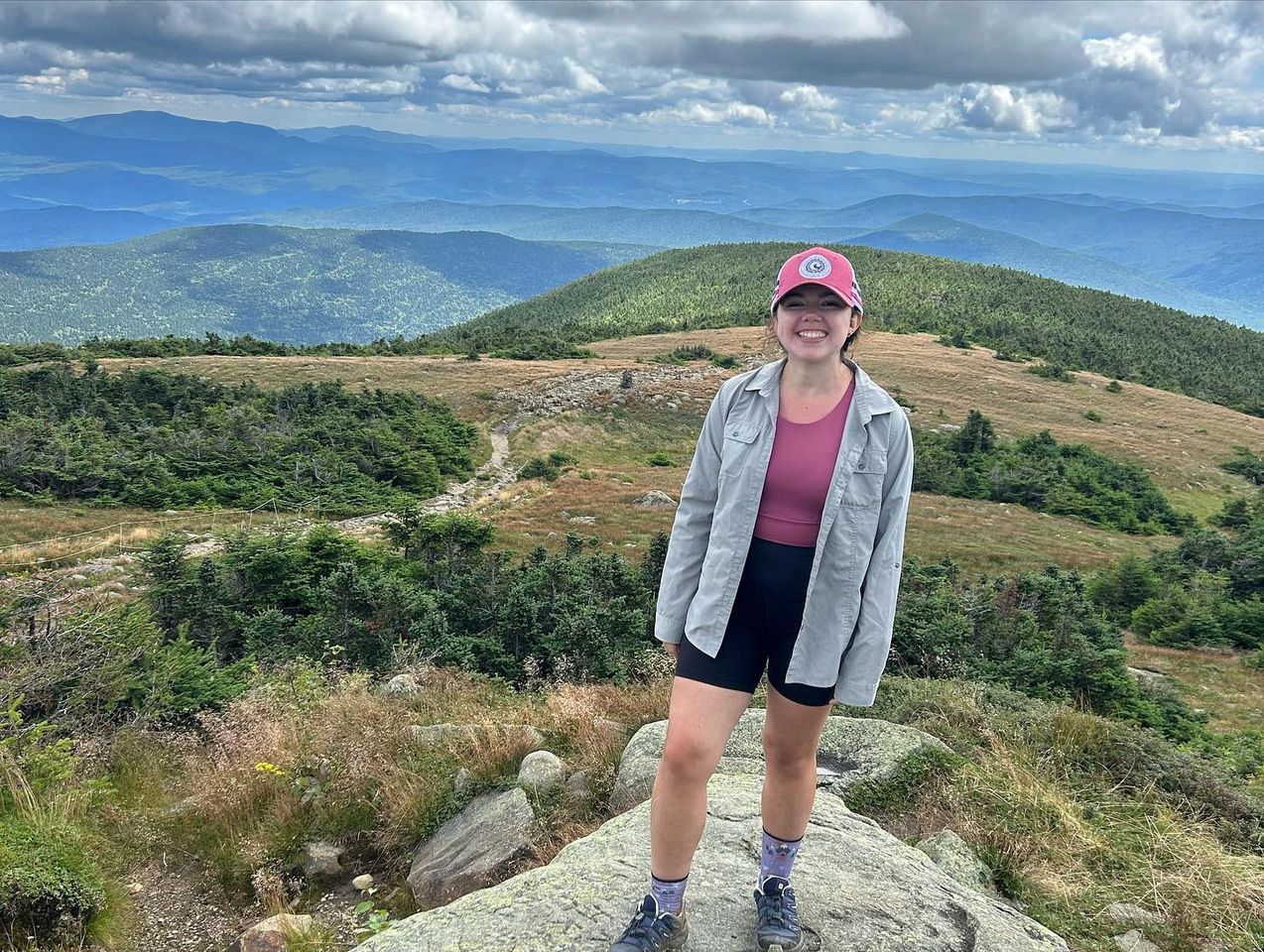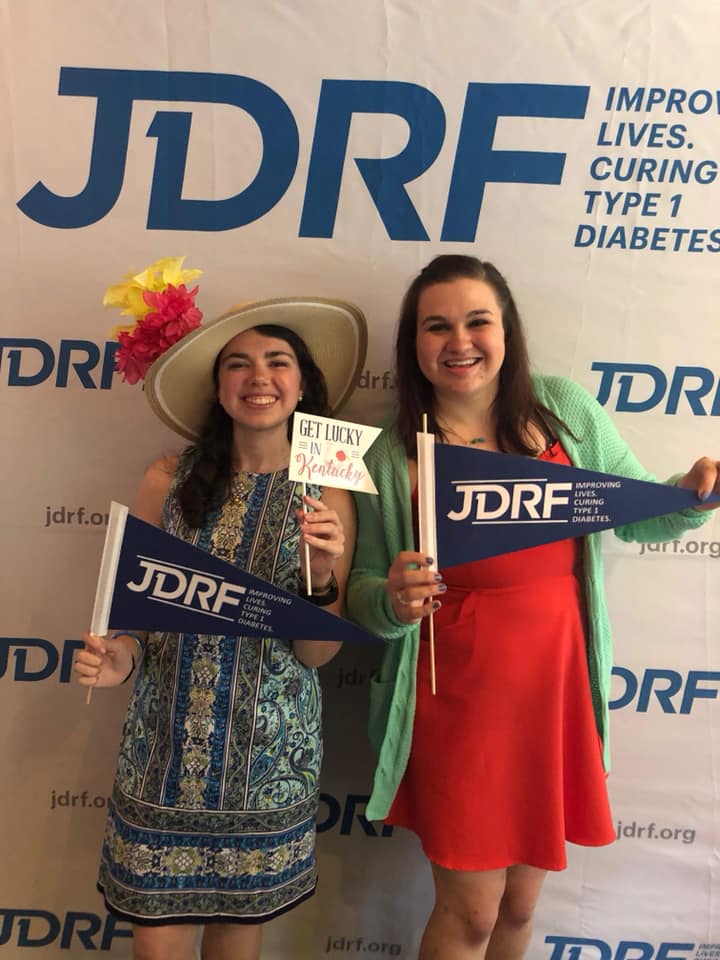November Cure Champion

 I was diagnosed with type 1 diabetes (T1D) back on May 18, 2015, at the age of 21 years old, which coincidentally was also the day after I graduated from college. During my final semester of college, I noticed that I exhibited symptoms such as: excessive thirst, significant weight loss (I unknowingly lost 20 lbs.!), fatigue, frequent urination and always running to the bathroom in the middle of every night. However, I attributed most of my symptoms to being a busy college student who was also training for a half marathon (which I did complete two weeks before my diagnosis). I still remember waking up in the ICU of the hospital after feeling very sick the weekend of my graduation and the doctor told me that I have T1D, and for reasons unknown, the beta cells were destroyed in my pancreas that produces insulin. This diagnosis came as a surprise since there is no family history of T1D. I remember initially feeling shocked and overwhelmed, especially the first couple of weeks with learning how to test my blood sugar levels through finger sticks, giving myself multiple daily injections, getting a crash course in counting carbs in foods that I eat, and how to calculate appropriate insulin doses.
I was diagnosed with type 1 diabetes (T1D) back on May 18, 2015, at the age of 21 years old, which coincidentally was also the day after I graduated from college. During my final semester of college, I noticed that I exhibited symptoms such as: excessive thirst, significant weight loss (I unknowingly lost 20 lbs.!), fatigue, frequent urination and always running to the bathroom in the middle of every night. However, I attributed most of my symptoms to being a busy college student who was also training for a half marathon (which I did complete two weeks before my diagnosis). I still remember waking up in the ICU of the hospital after feeling very sick the weekend of my graduation and the doctor told me that I have T1D, and for reasons unknown, the beta cells were destroyed in my pancreas that produces insulin. This diagnosis came as a surprise since there is no family history of T1D. I remember initially feeling shocked and overwhelmed, especially the first couple of weeks with learning how to test my blood sugar levels through finger sticks, giving myself multiple daily injections, getting a crash course in counting carbs in foods that I eat, and how to calculate appropriate insulin doses.
Fast forward eight and a half years later, now at the age of 30 years old, I look back at living the majority of my twenties while managing a chronic health condition. By no means has it been easy–there have been tears of frustration for a high that will not come down no matter how much I give for an insulin correction and go for walks, or waking up for work in the morning very tired after chasing a low blood sugar the majority of the night with little sleep, and packing for a vacation and making sure that I have a month’s worth of supplies and back-ups on back-ups so I am prepared if anything goes wrong. While my diabetes is something I need to always think about throughout my day, it has shown me a resiliency and courage that I did not know was there in myself until my diagnosis. My diabetes has also taught me to be more compassionate and empathetic towards myself. Even if I do not have a totally perfect day of blood sugars in range, that is sometimes out of my control, I am still doing my best. Fortunately, I am someone who has always enjoyed eating a healthy, balanced diet (of course having a little sweet tooth- life is all about moderation!) and leading an active lifestyle. This of course requires a little extra planning now in checking my blood sugar levels before, during, and after an activity, deciding whether I need a snack before and wait until my blood sugar is at a certain level to workout, and wearing a fanny pack filled with glucose tablets when I go out for a run or a hike. Since I have been diagnosed, there have been many technological advances that make living with T1D more manageable. For instance, I use a continuous glucose monitor (CGM) which makes checking my blood sugars so easy by looking at the widget app on my phone. I can also note trends and make adjustments if needed. After nearly eight years of multiple daily injections and “pump shopping,” I recently made a switch and I could not be happier with how much it helps with getting more sleep throughout the night and keeping my blood sugars more time in range.
My T1D diagnosis has helped me learn the importance of community. I am very fortunate to have a supportive and knowledgeable endocrinologist, as well as family and friends who are curious to learn more and want to know how to help. I was recently away on a weekend trip with a group of friends who were intrigued to watch me change my pump site! My diagnosis has also led me to meet people who I would not have met otherwise. I have met fellow T1D friends through events hosted by the JDRF Young Leadership Committee (YLC), and have been able to get to know JDRF staff by volunteering at events such as the One Night Gala and TypeOneNation Summit. I have even recruited some of my non-T1D friends to join me for some of these events to learn more about JDRF’s impact in research and advocacy. Last summer, I became involved with the Jewish Big Brothers Big Sisters (JBBBS) of Greater Boston’s Type 1 Diabetes program through a collaboration with JDRF. I was one of their first matches with a “Little” who also lives with T1D. My “Little” and I have done fun activities together like going to a playground and out for ice cream, painting pottery, ice skating, apple picking, and bowling. Even if we do not talk about our T1D while we are together, knowing that this is something that we both have in common is helpful and that I am there for her if she needs support, whether sitting together waiting for a “low” to come up after treating it with fast-acting sugar or figuring out how much to bolus for ice cream. It has been so fun to get to know my “Little” and volunteer with JBBBS to help make a difference in a young person’s life!
-Elizabeth Nako